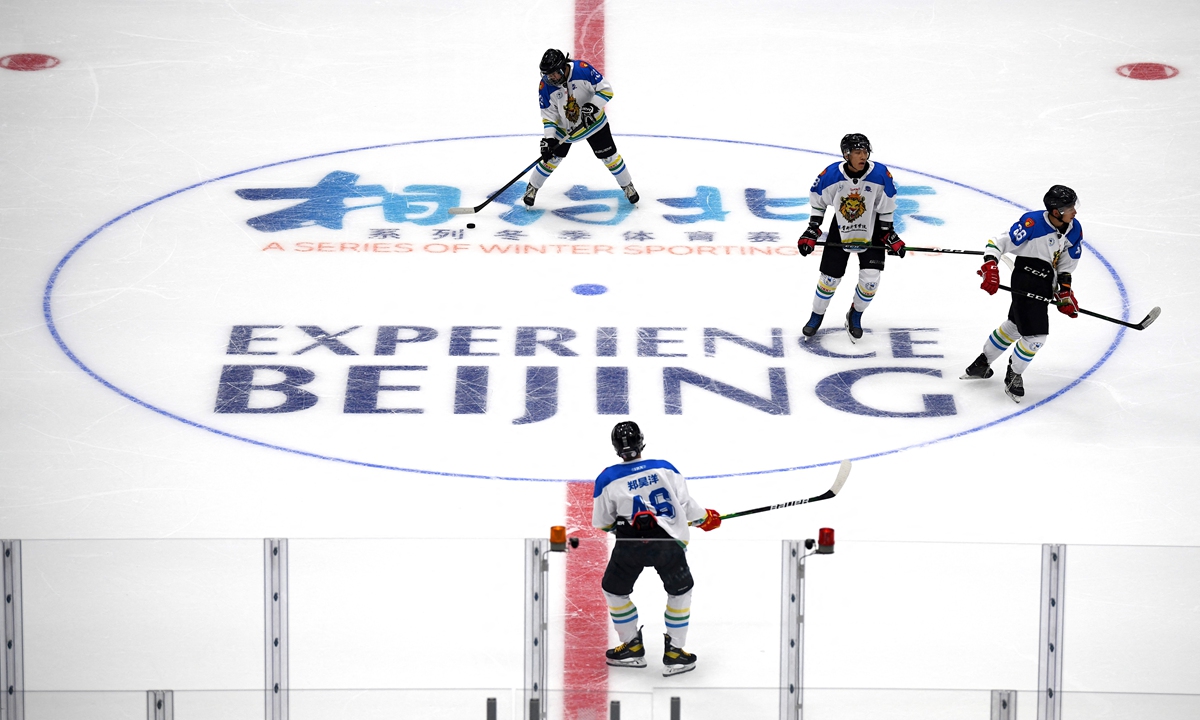
Ice hockey players practise during a test event for the 2022 Beijing Winter Olympic Games at the National Indoor Stadium in Beijing on Thursday. The test event series will run until April 10. Photo: AFP
Spectators who enter the National Indoor Stadium in Beijing to watch the Winter Olympic Games must be fully vaccinated and will be required to present a negative nucleic acid test result within 48 hours, the venue's epidemic prevention manager told the Global Times on Thursday.
Although spectators to the Winter Olympics on site are not required to enter closed-loop management as athletes and media personnel, for epidemic prevention reasons, those entering must be fully vaccinated against the COVID-19 and need to test negative 48 hours before entering, Bao Weihua, epidemic prevention manager of the National Indoor Stadium, told the Global Times.
The National Stadium, which will host the men's ice hockey event during the Winter Olympics, has a capacity of 18,000. After zoning and arranging seating for event-related personnel, about 6,000 seats are available to the public, the Global Times learned.
However, it has not yet been determined whether the seats will be open to the public.
"The number of seats to be opened depends on the epidemic situation in Beijing and nationwide at the time of the event," Lei Ming of the arena's operations team told the Global Times.
If there is no epidemic in the country by then, more seats will be open. But if the epidemic is more serious, it is even possible that the seats will not be open to spectators, Lei said.
Lei added that it is expected that baffles will be placed in every other seat between spectators to prevent the spread of the virus.
During the Winter Olympics, all closed-loop personnel, including athletes, media personnel and staff, will be tested daily and will be allowed to enter the venues only with negative results, Bao said.
Days before the start of the Winter Olympics, service personnel will need to enter the closed loop. The earliest they can leave is after the Winter Paralympic Games in March, Lei said.
Contact between those inside and outside the closed loop will be cut off, Bao said. If items need to be transferred from outside the closed loop to the inside, an intelligent logistics storage cabinet will be used. The cabinet is one-way, and items cannot be passed from inside the closed loop to outside the closed loop.
Athletes and staff cannot move between venues on their own, and must use exclusive shuffle buses to ensure zero contact with those outside the closed loop.
In December, the Beijing Winter Olympic Organizing Committee will release the final version of the Games' guidebook of anti-COVID-19 measures, which is expected to detail the requirements for personnel and athletes.
The Beijing Winter Olympics will be held from February 4-20, 2022.




